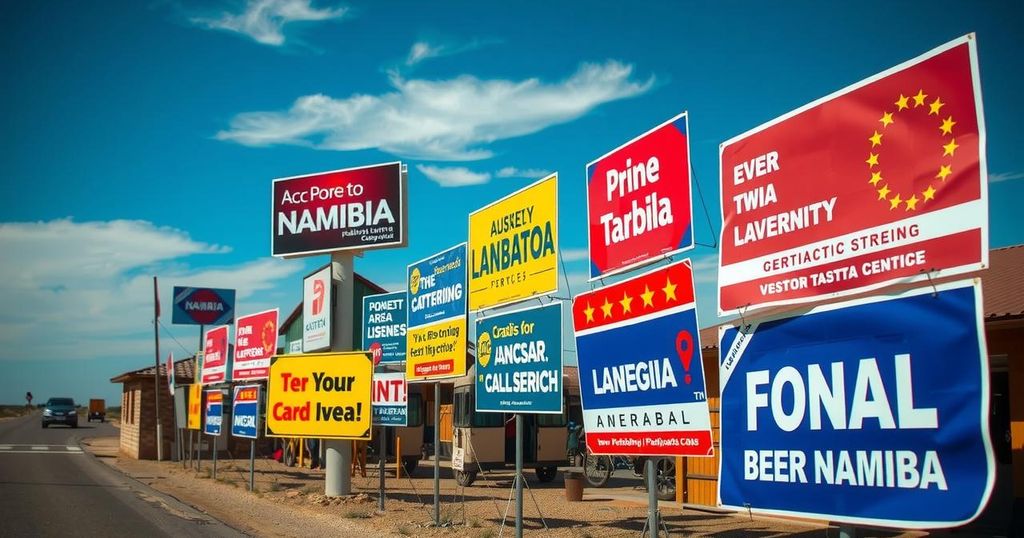The upcoming Namibian elections present challenges for SWAPO, the ruling party since 1990, following a decline in public support. With fragmented opposition led by Panduleni Itula of the IPC, alongside Netumbo Nandi-Ndaitwah aiming to become the first female president, the political landscape is poised for potential shifts. Voter confidence remains crucial as election day approaches.
The upcoming presidential and parliamentary elections in Namibia, taking place on Wednesday, present significant challenges for the ruling South West Africa People’s Organisation (SWAPO). Although SWAPO continues to retain strong support in the northern regions, it has experienced a decline in its political standing, losing its two-thirds majority in 2019 and facing further setbacks in local elections. Political analysts, however, suggest that a fragmented opposition, rather than a unified challenge, may allow SWAPO to maintain its hold on power.
The current vice president, Netumbo Nandi-Ndaitwah, seeks to become Namibia’s first female president. Nandi-Ndaitwah promisingly aims to create substantial employment opportunities through investment initiatives, despite some skepticism regarding the feasibility of her goals. Meanwhile, the Independent Patriots for Change (IPC), under the leadership of Panduleni Itula, emerges as the prominent opposition force, potentially positioning itself as a united challenge against SWAPO’s reign.
As the elections approach, the IPC and other emerging parties like Affirmative Repositioning indicate an intensifying political landscape, where SWAPO may find itself compelled to engage in coalition governance if results lean against it. Recent trends show SWAPO may still lead, but the competition guarantees a noteworthy shift in Namibia’s political dynamics.
The political landscape in southern Africa has seen a decline in support for long-term ruling parties, echoing challenges faced by SWAPO in Namibia, which has commanded power since independence in 1990. The organization suffered its lowest electoral performance in the 2019 national elections, marking the onset of a gradual shift in voter sentiment. The fragmented and often ego-driven opposition parties have struggled to unify, resulting in SWAPO capitalizing on their disarray. The current elections are an essential barometer for the nation’s political evolution, spotlighting issues such as gender representation and economic opportunity under the stewardship of aspiring leaders like Nandi-Ndaitwah.
As Namibia prepares for its pivotal elections, SWAPO’s endurance is tested by a fragmented opposition and evolving voter expectations. Although the party seeks to defend its dominance amidst significant challenges, the emergence of leaders like Netumbo Nandi-Ndaitwah and formidable opposition entities suggests the potential for a major political shift. Whether SWAPO can reclaim its previous authority or will be forced into coalition governance remains one of the election’s most critical questions.
Original Source: www.dw.com






